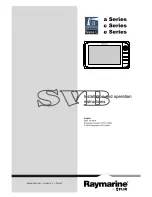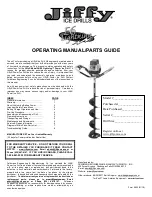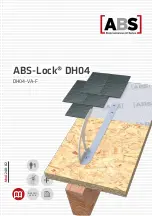4-13
The Algorithms and their Parameters
Rich Plate Tweaks Page
RAND sets the rate of the randomization process. Plates should generally use
low amounts of randomization.
SHAP and SPRD work together to control the overall ambience of the reverbera-
tion created by the 300. SHAP determines the contour of the reverberation
envelope. With SHAP all the way down, reverberation builds explosively, and
decays quickly.
As SHAP is advanced, reverberation builds up more slowly and sustains for the
time set by SPRD. With SHAP in the middle, the buildup and sustain of the
reverberation envelope emulates a large concert hall (assuming that SPRD is at
least halfway up, and that SIZE is suitably large—30 meters or larger.)
SPRD works together with SHAP to control the duration of the initial ambience
created by the 300. Low SPRD settings result in a rapid onset of reverberation
at the beginning of the envelope, with little or no sustain. Higher settings spread
out both the buildup and sustain.
DIFF controls the degree to which initial echo density increases over time. High
settings of DIFF result in high initial buildup of echo density; low settings cause
low initial buildup. Echo density is also affected by SIZE; smaller spaces will
sound denser. To enhance percussion, use high settings of DIFF. For clearer,
more natural vocals, mixes, and music, use low or moderate settings.
When LINK is set, the reverb time and spread values scale linearly as the SIZE
control is varied. For some special effects, RTIM and SPRD can be unlinked.
SIZE allows you to vary the apparent size of the space over a wide range. SIZE
is the most dramatic control, and must be selected to match the music or program
material. It should be the first control that you adjust to tailor the desired space.
SIZE also affects the reverb time, in a similar way to the standard reverb
programs.
Rich Plate Delay and Feedback Pre-Echoes Page
These pages provide control over three stereo delay pairs. All three are summed
with the output of the reverberator. Many, many different echo combinations are
possible.
DLY1 and DLY2 (0ms-2000ms) are recirculating delay lines to the left and right
channel inputs. The path of either is picked off after the diffusor with the amount
of recirculation defined by the adjustment of FBK1 (for DLY1) and FBK2 (for
DLY2). DLY1 and DLY2 are the only delays which effectively feed back
(recirculate) into the reverberator.
RAND (Randomization)
SHAP (Shape)
SPRD (Spread)
DIFF (Diffusion)
LINK
SIZE
DLY1 , DLY2
Summary of Contents for 300
Page 1: ...300 Digital Effects System V 3 0 Owner s Manual ...
Page 6: ......
Page 9: ......
Page 10: ...1 1 Installing the 300 1 Installing the 300 ...
Page 21: ...2 1 System Overview 2 System Overview ...
Page 30: ...3 1 System Operation 3 System Operation ...
Page 57: ...4 1 The Algorithms and their Parameters 4 The Algorithms and their Parameters ...
Page 93: ...5 1 The Presets 5 The Presets ...
Page 129: ...6 1 Time Code Operation 6 Time Code Operation ...
Page 139: ...7 1 MIDI Operation 7 MIDI Operation ...
Page 147: ...8 1 Troubleshooting 8 Troubleshooting ...


















